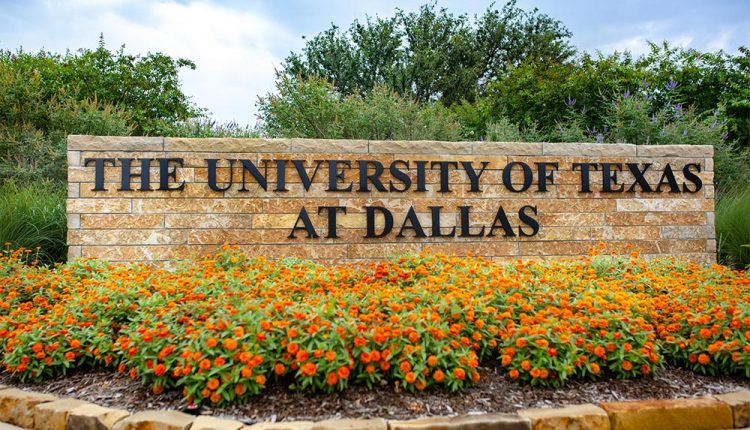University of Texas at Dallas: UTD Project Aims To Improve Equation for Math Class Placement
The University of Texas of Dallas is studying how to place students in math classes more effectively in a new initiative designed to ensure equity and greater academic success.
Last fall, the Lumina Foundation, an independent, national private foundation, awarded $550,000 to The University of Texas System to establish the Equitable Student Pathways Project, which will use data to create ways that will help more students enter and complete quality degree programs at UT System institutions. The UT System recently selected eight projects, including UT Dallas’, to participate in the first year of the initiative.
UT Dallas will develop a strategy that focuses on math class placement, the effects of COVID-19 on math readiness, and math progression throughout the curriculum, particularly in science, technology, engineering and mathematics (STEM) programs.
Dr. Inga Musselman
“With many UT Dallas students pursuing academic degrees in the STEM disciplines, being properly placed into a math course is critical for the start of their college careers and for success in their academic programs,” said Dr. Inga Musselman, UT Dallas provost, vice president for academic affairs and the Cecil H. Green Distinguished Chair of Academic Leadership.
Fifty-three UT Dallas undergraduate degrees require math in the first term, and more than 3,700 first-time-in-college students were taking their first college math class at UT Dallas in the 2021-22 academic year. If students are placed in a math course that is not the right fit for their preparation, the results aren’t typically good, Musselman said.
“Students performing well in that first semester is very critical to their staying in school and to their future success,” she said. “It’s very important that we match their knowledge and their ability with the first math course in which they enroll.”
Dr. Jessica Murphy
Analysis conducted by the Erik Jonsson School of Engineering and Computer Science showed a significant relationship between the grades students earned in their first UT Dallas math course and outcomes, such as reenrollment and completion. Administrators said many new students have not been prepared for calculus, which, for many STEM majors, is the basic required math class.
“Our data show that about 40 percent of Jonsson School students are not ready for calculus out of high school, which makes graduation in four years virtually impossible,” said Dr. Amy Walker, professor of materials science and engineering and associate dean for undergraduate education in the Jonsson School.
A number of factors can affect the readiness of a new student for college math, said Dr. Jessica Murphy, dean of undergraduate education, professor of literature and Mary McDermott Cook Chair for Undergraduate Education.
The best preparation is an Advanced Placement calculus class in high school, but Murphy said not all students have access to such classes, which puts them at a disadvantage at UT Dallas.
“By taking a holistic look at math at UT Dallas, we hope that learning loss will be mitigated among all students, but particularly vulnerable students who might see significantly improved outcomes.”
Dr. Jessica Murphy, dean of undergraduate education at UT Dallas
“Many student populations are already affected by systemic inequities in secondary education,” Murphy said. “By taking a holistic look at math at UT Dallas, we hope that learning loss will be mitigated among all students, but particularly vulnerable students who might see significantly improved outcomes.”
The effect of COVID-19 on the learning of incoming STEM students is another important aspect of the project.
Dr. Vladimir Dragovic
“Students coming to UT Dallas now have experienced a different type of education during the last two years than what incoming students experienced five years ago,” said Dr. Vladimir Dragovic, professor and head of mathematical sciences in the School of Natural Sciences and Mathematics. “We need to study how the process of formation and learning — particularly in math — has been affected by the COVID-19 pandemic.”
In addition to Murphy, Walker and Dragovic, the UT Dallas project group includes Dr. Courtney Brecheen, senior associate dean of undergraduate education; Dr. Laura Gelles, research associate in the Jonsson School; Dr. Swati Biswas, professor and associate head of mathematical sciences; and Jennifer McDowell, university registrar.
In a series of meetings this year, the cohort is working with UT System administrators to interpret data and develop a plan.
“This could be a real game-changer,” Musselman said. “I am expecting this program to smooth the way for many of our students, so that fewer of them will falter at the beginning and many more will have successful starts and, ultimately, successful academic experiences.”

